The independent presses that are really worth a writer’s attention are pretty easy to identify because, well, they have a solid identity. Not a marketing gimmick or a clever sales pitch, but rather a depth of character that can be developed only through the deliberate and consistent publication of writing in which the editors truly believe. Call it a mission; call it moxie. Call it whatever you’d like. You’ll know it when you read it. You’ll feel it.
It is no surprise then that common threads run through many of the stories of publishing partnerships. Fun. Pride. Family. Love. This is independent publishing.
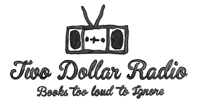
TWO DOLLAR RADIO
Founded: 2005
Location: Columbus, Ohio
Publishes: “We characterize the work that we are drawn to as bold literary fiction,” says editorial director Eric Obenauf. “We publish five or six books a year, almost exclusively fiction, almost entirely novels.”
Accepts: Manuscripts with a three-dollar reading fee through Submittable; no proposals or queries
Contact: twodollarradio.com; twodollarradio.submittable.com/submit
SHANE JONES, the author of Crystal Eaters, published in June by Two Dollar Radio: After publishing two novels with Penguin I was told by my editor that if sales didn’t increase it would be difficult to proceed with a third book. The following year was a brutal time of stagnation—e-mails to my agent on where to submit next that went unanswered, erratic editing on my book, and fits of jealously over friends’ publishing deals. I would gladly have this time mind-erased.
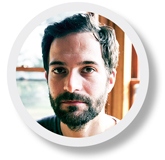 I had been a fan of Two Dollar Radio for more than a year when I submitted Crystal Eaters on a Thursday afternoon. I had become frustrated being at a large literary agency and a major publishing house—an experience that at its worst resembled answering office e-mail. I occasionally felt like I was doing something wrong when it was impossible to be doing something wrong. My time spent with independent presses in the past (Publishing Genius, for example) was more akin to building a tree house in the dark by candlelight, hoping you create something to stand on. Crystal Eaters was accepted Monday morning and a contract came days later.
I had been a fan of Two Dollar Radio for more than a year when I submitted Crystal Eaters on a Thursday afternoon. I had become frustrated being at a large literary agency and a major publishing house—an experience that at its worst resembled answering office e-mail. I occasionally felt like I was doing something wrong when it was impossible to be doing something wrong. My time spent with independent presses in the past (Publishing Genius, for example) was more akin to building a tree house in the dark by candlelight, hoping you create something to stand on. Crystal Eaters was accepted Monday morning and a contract came days later.
What appealed to me about Two Dollar Radio was a combination of things: from its dedication to publishing outsider voices all with a cohesive aesthetic (I’m still not sure how they pull this off) to a publishing philosophy that mixes family closeness and punk aesthetics (think of a record label like Drag City). I wanted to be there. I wanted to go back to the tree-house feeling. When Eric Obenauf sent me an acceptance letter just under a thousand words long (keep in mind, this is four days after submitting a book I had sat with for more than a year) I was excited again. It felt raw and dangerous to be publishing a book like this again. Not only did Eric have a vision for Crystal Eaters (which he would help expand fifteen thousand words and cut thousands more), but there was also a close, loose, “let’s just do this” vibe. Things felt fun again, and if it doesn’t feel fun, why do it at all?
ERIC OBENAUF, the editorial director of Two Dollar Radio: I knew who Shane Jones was when he submitted his manuscript for Crystal Eaters, though I hadn’t read any of his earlier books. I spied Light Boxes displayed on a bookstore shelf a couple of years ago, after Penguin reissued it, and thought that it sounded brilliantly bizarre, original, and moving. It sounded like something no other writer was working on. It sounded like something that I would have liked to publish at Two Dollar Radio.
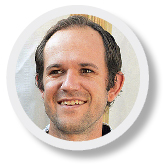 When Shane’s e-mail arrived, it was late in the week and I was sick with a head cold, which typically means I run on the treadmill or watch Dual Survival. After I read the synopsis, I opened the manuscript and didn’t stop. I loved the setting—a village where everyone believes in “crystal count,” that you are born with one hundred internal crystals and when you reach zero you die—which felt to me like Shane had blown life into one of the video games I played growing up. There is a city encroaching on the village, threatening its antiquated life; also, the sun is creeping closer by the day. The allegorical elements, combined with the brave young female protagonist, reminded me of Beasts of the Southern Wild, which I had seen recently and adored. Needless to say, I fell in love, and on Monday I wrote Shane to accept the book.
When Shane’s e-mail arrived, it was late in the week and I was sick with a head cold, which typically means I run on the treadmill or watch Dual Survival. After I read the synopsis, I opened the manuscript and didn’t stop. I loved the setting—a village where everyone believes in “crystal count,” that you are born with one hundred internal crystals and when you reach zero you die—which felt to me like Shane had blown life into one of the video games I played growing up. There is a city encroaching on the village, threatening its antiquated life; also, the sun is creeping closer by the day. The allegorical elements, combined with the brave young female protagonist, reminded me of Beasts of the Southern Wild, which I had seen recently and adored. Needless to say, I fell in love, and on Monday I wrote Shane to accept the book.
When I draft that initial letter of acceptance, I always mention sections that I plan to focus on in revisions. It’s important that the author and I share the same end-vision for the work. I wanted to ground the story to draw out the details of village life, as well as thread those threatening elements (the city, the sun) more throughout. Shane is a pro, and was open and amenable to my suggestions. I understood that Penguin had put Shane through the wringer, that he had begun to feel disillusioned with the process, and that he was renewing his commitment to producing art for art’s sake. And for him, that meant returning to his indie-press roots. I’m thrilled it was with Two Dollar Radio.
New and Forthcoming From Two Dollar Radio
Nicholas Rombes’s debut novel, The Absolution of Roberto Acestes Laing (October 2014)
Sarah Gerard’s debut novel, Binary Star (January 2015)
Carola Dibbell’s debut novel, The Only Ones (March 2015)
![]()

FUTURE TENSE BOOKS
Founded: 1990
Location: Portland, Oregon
Publishes: Fiction, creative nonfiction, poetry: “I tend to like work that blends genres,” says publisher Kevin Sampsell. “We’ve done a lot of hybrid nonfiction kind of stuff, but we’re still very much interested in fiction.”
Accepts: “We don’t take submissions right now but our website does encourage people to e-mail us and say hi and let us know about their work.”
Contact: kevin@futuretense
books.com; futuretensebooks
.com
WENDY C. ORTIZ, the author of Excavation: A Memoir, published in July by Future Tense Books: My book was making the rounds of editors at publishing houses in early 2013, and the rejections I received via my agent included adjectives such as “strong,” “compelling,” “powerful,” and “beautiful,” in addition to how “tough” the topic is, and how difficult it would be to sell to an audience. The Nervous Breakdown published an essay of mine, “Mix Tape,” that essentially broke down the story in the memoir into a mix tape form. Kevin Sampsell, editor and publisher of Future Tense Books, came across the essay and left the comment: “A spectacular essay.” Soon after, we were “meeting” over e-mail and he asked if I was working on anything full-length, so I sent him the book.
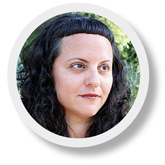 Independent presses have always appealed to me, and with Kevin, who has worked at Powell’s Books for a number of years and is a published author himself, I knew my book would get the benefit of his knowledge of the traditional publishing world while maintaining an integrity and cutting-edge quality that my favorite kind of independent presses are known for. When he e-mailed me the screen capture announcing my book’s acquisition by him in Publishers Weekly, it was unexpected, lovely, and special. That was only one of many times that confirmed for me I’d made the right decision.
Independent presses have always appealed to me, and with Kevin, who has worked at Powell’s Books for a number of years and is a published author himself, I knew my book would get the benefit of his knowledge of the traditional publishing world while maintaining an integrity and cutting-edge quality that my favorite kind of independent presses are known for. When he e-mailed me the screen capture announcing my book’s acquisition by him in Publishers Weekly, it was unexpected, lovely, and special. That was only one of many times that confirmed for me I’d made the right decision.
Around the time the book was released, I opened a fortune cookie with a fortune that read, “You will continue to take chances and be glad you did.” Those words couldn’t feel any truer than they did in that moment. My book has a cover that people continuously exclaim over and that I had a choice in; the editor I was paired with was strong, capable, and we worked perfectly together; Kevin’s guidance through the whole process was personal and kind. I recognize these as hallmarks of having gone with Future Tense Books for Excavation: A Memoir, hallmarks I can’t say I would have experienced with a traditional publisher.
KEVIN SAMPSELL, the publisher of Future Tense Books: I was excited to have the chance to read Excavation when it finally came to me. I was a huge fan of Wendy’s essay “Mix Tape,” which was about the same troubling relationship with her teacher that she explores in her book, but from a different direction. Wendy told me that her agent was shopping to all the big presses so I had to wait a few months, but those presses weren’t quite excited enough to make an offer. In a selfish way, I was happy to have it land with me at Future Tense. I think, in many ways, small presses can bring this kind of book to life without compromising it or editing it to a point that makes it more commercial or whatever. I liked that Excavation takes on a messy subject and doesn’t deliver the obvious victim and perpetrator roles. It’s more complicated than that, and I wanted Wendy to explore that. That’s what makes the book a rewarding experience. It grapples and meditates in equal measure. It’s beautiful and brutal. I have a newer editor working with me at Future Tense named Tina Morgan; she appreciates this kind of book as well, and I wanted to have strong female input on the editing and shaping of the book. Tina and I worked really hard on bringing out the boldness of Wendy’s voice, and as readers have seen, it’s a pretty clear and stunning voice. Wendy is also just a great person to work with, and working with Future Tense authors has always felt like a family. It’s not a requirement to become my best friend if I’m publishing you, but I do often end up with a special bond with the writers I publish. I love these people. Wendy was someone I was excited to welcome into the family.
 I’m not sure why other publishers didn’t take on Excavation. But when you’re dealing with a big company, there are so many doors to pass through, more people who have to give it their approval. You have editors in charge of other editors, and you have marketing people trying to figure out what the next big thing is, and you have the people who sign the checks, and if one of them isn’t comfortable with representing your book (or maybe its subject matter), you can’t get a deal with them. It’s funny then, when people who work for those big publishing houses order the book from us online. It’s kind of gratifying to go to the post office to mail another copy to another editor at HarperCollins or Penguin Random House. I like to think the fact that Future Tense and other small presses are putting out “difficult” books that then become successful is inspiring the bigger houses to take more chances with authors like Wendy and books like Excavation.
I’m not sure why other publishers didn’t take on Excavation. But when you’re dealing with a big company, there are so many doors to pass through, more people who have to give it their approval. You have editors in charge of other editors, and you have marketing people trying to figure out what the next big thing is, and you have the people who sign the checks, and if one of them isn’t comfortable with representing your book (or maybe its subject matter), you can’t get a deal with them. It’s funny then, when people who work for those big publishing houses order the book from us online. It’s kind of gratifying to go to the post office to mail another copy to another editor at HarperCollins or Penguin Random House. I like to think the fact that Future Tense and other small presses are putting out “difficult” books that then become successful is inspiring the bigger houses to take more chances with authors like Wendy and books like Excavation.
New and Forthcoming From Future Tense Books
Litsa Dremousis’s essay e-book, Altitude Sickness (October 2014)
Troy James Weaver’s debut story collection, Witchita Stories (February 2015)
![]()

CANARIUM BOOKS
Founded: 2008
Location: Marfa, Texas
Publishes: Poetry collections
Accepts: Manuscripts through Submittable during the open submission period (usually February)
Contact: canariumbooks@gmail.com; canarium.org
DARCIE DENNIGAN, the author of Madame X, published in April 2012 by Canarium Books: On the eve of 2011, I resolved—on a scrap of paper I then burned and set free over a polluted river—to finish my manuscript and send it to my three ideal publishers, one of which was Canarium. In April, before I could finish the manuscript, Canarium e-mailed me out of the blue. It was such a gift to have this publisher I loved ask to see my work. My manuscript wasn’t ready, but every night for a week I would put my daughter to sleep and then sit up on my bed and type up the poems I’d been working on, because I was so determined not to blow this opportunity to show them a book.
 Canarium had published Ish Klein, whose messy, sometimes feverish work inspires me. I am also a huge fan of editor Robyn Schiff’s poetry. Since joining up with Canarium, I’ve watched the other editors, Josh Edwards, Lynn Xu, and Nick Twemlow, publish books as well, and it’s pretty cool how gorgeous their poems are in completely different ways. They kept a pretty light hand with Madame X—I was surprised and grateful at how messy they let me keep the poems. At the same time, Josh helped me improve upon the original title and organization, and he did some awesome things with the book design. When I asked if we could use one of my husband’s drawings for the cover, he said, “Of course! We like to keep it in the family.” That also is typical of Canarium: It’s a family affair, and the editors have a talent for making you feel like you’re part of something that doesn’t have to be separate from your other life. Josh is always inviting writers to come with their families and set up a tent on his land in Marfa, Texas. Last fall, Nick organized a mini book tour in the Midwest for me and Farnoosh Fathi (whose book came out the year after mine but whose work I had loved and followed since 2008), and he and Robyn were so kind about my mom and three-month-old baby tagging along too. If they’ll have it, I want Canarium to publish my next book too, but not just because I feel an affinity for its editors. I need a publisher committed to not only publishing books but also to helping those books find their way in the world by organizing readings and putting books in the hands of great reviewers, and Canarium is absolutely terrific at that.
Canarium had published Ish Klein, whose messy, sometimes feverish work inspires me. I am also a huge fan of editor Robyn Schiff’s poetry. Since joining up with Canarium, I’ve watched the other editors, Josh Edwards, Lynn Xu, and Nick Twemlow, publish books as well, and it’s pretty cool how gorgeous their poems are in completely different ways. They kept a pretty light hand with Madame X—I was surprised and grateful at how messy they let me keep the poems. At the same time, Josh helped me improve upon the original title and organization, and he did some awesome things with the book design. When I asked if we could use one of my husband’s drawings for the cover, he said, “Of course! We like to keep it in the family.” That also is typical of Canarium: It’s a family affair, and the editors have a talent for making you feel like you’re part of something that doesn’t have to be separate from your other life. Josh is always inviting writers to come with their families and set up a tent on his land in Marfa, Texas. Last fall, Nick organized a mini book tour in the Midwest for me and Farnoosh Fathi (whose book came out the year after mine but whose work I had loved and followed since 2008), and he and Robyn were so kind about my mom and three-month-old baby tagging along too. If they’ll have it, I want Canarium to publish my next book too, but not just because I feel an affinity for its editors. I need a publisher committed to not only publishing books but also to helping those books find their way in the world by organizing readings and putting books in the hands of great reviewers, and Canarium is absolutely terrific at that.
JOSHUA EDWARDS, the founding editor of Canarium Books: In April 2011 we were considering manuscripts during our open reading period and were looking for a few more. I was a big fan of Darcie’s first book, Corinna, A-Maying the Apocalypse (Fordham University Press, 2008), and I loved the more recent work I’d come across, so her name was at the top of my list of people to query. Robyn Schiff, Nick Twemlow, and Lynn Xu were also keen to read her second manuscript. We sent her a note and she got back to us saying she was nearly done with the collection and she’d been thinking of sending it to Canarium; she just needed some time. A week later the manuscript that would 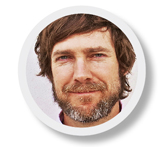 become Madame X arrived. We all thought that besides being an absolutely fantastic manuscript, it would contribute greatly to the conversation (or constellation) of the other books on our list. In June we let her know we’d be thrilled to publish her collection. One of her first questions was if she’d be able to have input in the cover art, since some of the poems in the book were the result of collaborations with her husband, the artist Carl Dimitri. We were happy to oblige. As a small press, it seems the only viable measure of success is the happiness of everyone involved. To this end, we try to make the whole process as personal as possible. Each book is assigned to one primary editor, with all of us helping out. Because of my particular interest in the themes of Madame X, I worked with Darcie. At the end of February 2012, the book was ready, and I had the pleasure of watching Darcie read with Anthony Madrid at the Empty Bottle in Chicago. There’s a distinct pleasure to seeing the resonance and texture we find in editorial work come to life. Each year two Canarium authors read together for the Helen Zell Writers’ Program at the University of Michigan, and we also try to organize at least one extensive tour. We try to stick with our authors, and I’m thrilled that Canarium gets to publish Darcie’s third book.
become Madame X arrived. We all thought that besides being an absolutely fantastic manuscript, it would contribute greatly to the conversation (or constellation) of the other books on our list. In June we let her know we’d be thrilled to publish her collection. One of her first questions was if she’d be able to have input in the cover art, since some of the poems in the book were the result of collaborations with her husband, the artist Carl Dimitri. We were happy to oblige. As a small press, it seems the only viable measure of success is the happiness of everyone involved. To this end, we try to make the whole process as personal as possible. Each book is assigned to one primary editor, with all of us helping out. Because of my particular interest in the themes of Madame X, I worked with Darcie. At the end of February 2012, the book was ready, and I had the pleasure of watching Darcie read with Anthony Madrid at the Empty Bottle in Chicago. There’s a distinct pleasure to seeing the resonance and texture we find in editorial work come to life. Each year two Canarium authors read together for the Helen Zell Writers’ Program at the University of Michigan, and we also try to organize at least one extensive tour. We try to stick with our authors, and I’m thrilled that Canarium gets to publish Darcie’s third book.
New and Forthcoming from Canarium Books
Tod Marshall’s poetry collection Bugle (November 2014)
The Collected Poems of Chika Sagawa translated by Sawako Nakayasu (January 2015)
Poetry collections by Emily Wilson and Michael Morse (April 2015)






